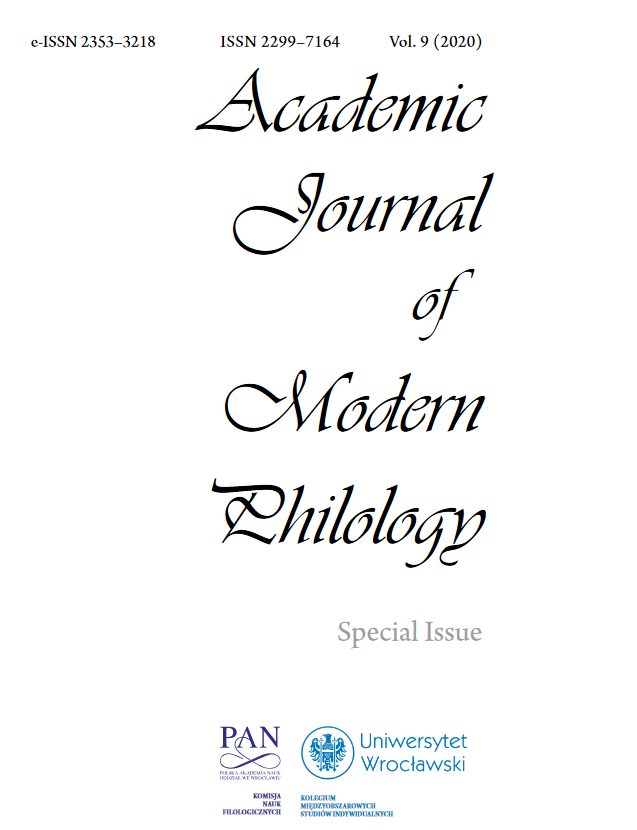Les noms propres en tant que structures classificatoires et identificatoires : étude cognitive (sur la base de trois langues : français, polonais, ukrainien)
Proper Names as Structures of Affinity and Recognition: A Cognitive Study (on the Basis of Three Languages: French, Polish, Ukrainian
Author(s): Hanna Kost, Zoriana PiskozoubSubject(s): Language studies, Language and Literature Studies
Published by: Komisja Nauk Filologicznych Oddziału Polskiej Akademii Nauk we Wrocławiu
Keywords: proper names; reference; historical and cultural context; proverbs; set expressions; inaugural speech; interpretive model
Summary/Abstract: In the article we outline some characteristics of proper names as a linguistic phenomenon, their communicative and compositional features, stylistic functions and interpretive-perceptual models. We consider our own names as linguistic universals that convey the linguistic and cultural code of a particular nation, revealing similarities or differences in representation in different languages. In addition to naming an object or person, proper names also perform the function of characterizing those objects or people. A comparative analysis of the use of proper names in presidential inaugural speeches and in proverbs presents proper names not only as separate textual elements, but also demonstrates the historical and cultural specificity of each country, embodied in its language, political and social accents, traditions passed down from generation to generation. Due to the recurrent use of texts, proper names create additional connotations and develop associative thinking of the reader or listener. Some of these proper names are elements of national identity, while others become a civilization property
Journal: Academic Journal of Modern Philology
- Issue Year: 2020
- Issue No: 9
- Page Range: 119-130
- Page Count: 12
- Language: French

